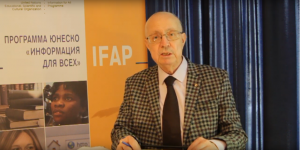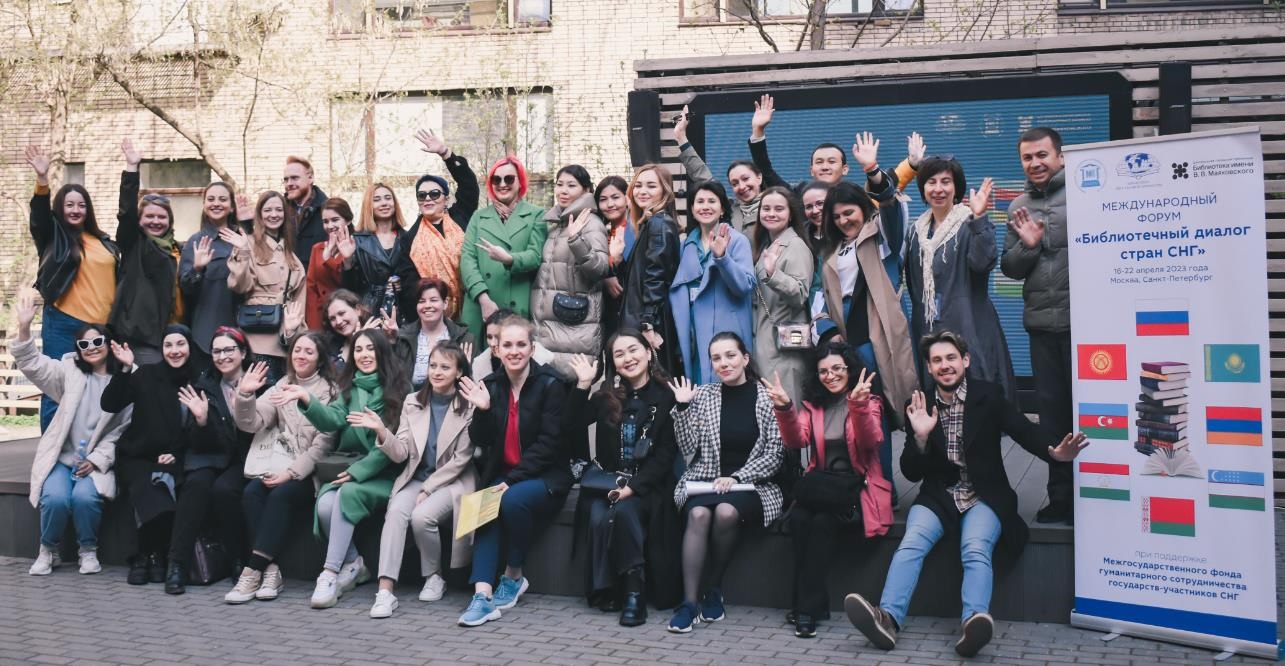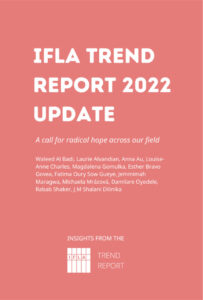The Russian Federation declared 2022 the Year of Cultural Heritage of the Peoples of Russia. This decision is in tune with the International Decade of the World’s Indigenous Languages (IDIL 2022-2032) proclaimed by the UN General Assembly (A/RES/74/135 Resolution).
In pursuance of it, the Russian institutions of culture, including libraries, have run cultural, educational, and professional events showcasing cultural diversity and promoting the local tangible and intangible cultural heritage.
Over many years Library for Foreign Literature (LFL) has lent methodological support to the activities of Russian libraries. LFL’s major annual professional forum, April Library Moscow Agenda (ALMA), this year is designed to help Russian libraries to develop services for multicultural populations.
On 6 April, 2022, Library for Foreign Literature held the 5th international ALMA forum dedicated to LFL’s 100th birthday. The event gathered representatives of regional libraries of Russia and LFL’s partners from the CIS (Commonwealth of Independent States) countries to discuss the global future of the library field and chart the way forward.
Mikhail Afanasiev, RLA president, and director of the State Public Historical Library pointed out that ALMA forums helped define views on the world and indicate what libraries can give the world at present.
“Today, in an age of divides, the library must maintain a sense of a united world. This is the mission that librarians in Russia and in the world need. We are a united community.”
Mikhail Afanasiev
The discussion of modern problems of the multicultural world was the main focus of the meeting. The UN’s initiative, the International Decade of the World’s Indigenous Languages, met with the support of the librarians, who spoke out in favor of making a contribution to tackling these problems.
The keynote address was made by Evgeny Kuzmin, a member of the National Organizing Committee for the 2022–2032 International Decade of Indigenous Languages in Russia, head of the Russian Committee of UNESCO Information for All Program (IFAP), Vice-Chairman of the Intergovernmental Council of UNESCO/IFAP, head of the UNESCO/IFAP Working Group on Preservation of Languages and Development of Linguistic Diversity in Cyberspace. His report, Modern problems of preservation and development of minority languages in the conditions of multilingualism in Russia and in the world: solutions and prospects, elicited a great response and lively discussion among the participants.
Evgeny Kuzmin stressed that issues related to the preservation of indigenous languages should be viewed from different perspectives — complex, multi-layered, civilizational, linguistic, and social. The extinction of indigenous languages and dialects is a consequence of globalization. According to experts, by the mid-XXI century, there will be only 60–70 dominant languages left in the world. All spoken languages will gradually degenerate, including African and eastern languages, which are noted for their ancient roots and richness. It is a great threat to the world’s cultural diversity.
The key role of education and its availability in indigenous languages remained central to the discussion. The librarians addressed the problems of the remoteness of indigenous peoples’ places of residence, the inadequate infrastructure, and the high potential that distance learning has in such territories. The participants in the ALMA forum described solidarity and cohesion of the language communities as one of the key factors in reviving and preserving their languages.
“People should be sufficiently well motivated to preserve their indigenous languages. It includes studying them, keeping up and using in public space, writing books in them, publishing newspapers, dictionaries, putting on plays, raising public awareness of any shifts in the linguistic realm. In cyberspace it implies developing machine translation and speech synthesis. All this is time-consuming and takes a lot of effort. It requires exchange of experience and conducting research.”
Evgeny Kuzmin

Evgeny I. Kuzmin’s presentation (in Russian) can be viewed here.
Further to the topic raised by the keynote speaker was a panel discussion entitled “Big Country and I: Big Opportunities and Big Risks”. It involved leading Russian experts of international and regional organizations for indigenous peoples and preservation of cultural heritage, specialists from major Russian research centers, universities, and publishing houses, as well as linguists, translators, developers of the site, and social media interfaces in indigenous languages.
The experts’ position was clearly stated: everyone has the right to study, read, and speak in their mother tongue, the language of their ancestors, and any multiethnic country has the obligation to allow its nationals to do so. The key role of education and its availability in indigenous languages was an overarching theme of the discussions. As regards the preservation of languages and intangible heritage, it is clear that the development of an effective way forward depends upon the concerted actions of a variety of institutions and sectors: legislation, education, publishing, IT technologies, and, of course, libraries.
The experts shared their unique cases, solutions, and best practices.
The forum‘s recording (in Russian) is available on the portal Culture of the Russian Federation portal.
—
- Svetlana A. Gorokhova,
Academic Secretary, V. Mayakovsky Central City Public Library, Saint-Petersburg, Russia
Advisor to Director General, M.I. Rudomino All-Russia State Library for Foreign Literature, Moscow, Russia
Board Member, Russian Library Association (RLA)
Chair, RLA Section for International Cooperation
Advisory Group Member, IFLA CPDWL Section
- Daria A. Beliakova,
Head, Center for Library Science and Professional Interaction, M.I. Rudomino All-Russia State Library for Foreign Literature, Moscow, Russia
SC Member, IFLA CPDWL Section
- Translated by Maria Bereslavskaya, Leading Specialist, Center for Library Science and Professional Interaction, M.I. Rudomino All-Russia State Library for Foreign Literature, Moscow, Russia



